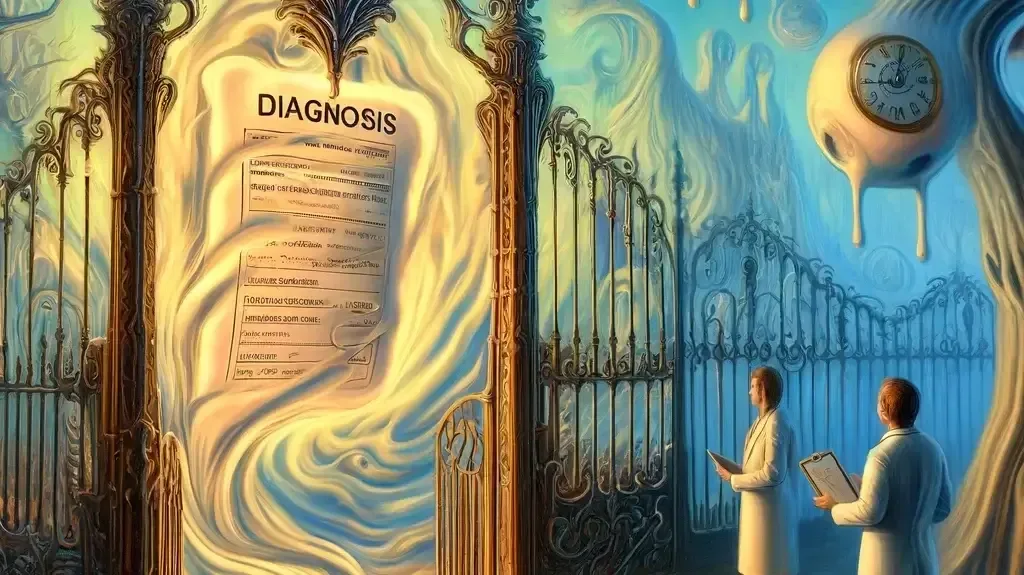The Struggle for an Autism Diagnosis: Overcoming Bias and Outdated Information
Obtaining an autism diagnosis can be an arduous journey, fraught with challenges stemming from anchoring bias and reliance on outdated information by therapists. This issue is particularly pressing for those whose lives are debilitated by overwhelming anxiety and sensory overstimulation. It’s not just about receiving a label; it’s about gaining access to the support and understanding necessary to improve one’s quality of life. The process, however, is often hindered by misconceptions and an underestimation of the complex nature of autism, especially in individuals who have masked their symptoms for years.
Anchoring Bias in Diagnosis
Anchoring bias occurs when professionals rely too heavily on initial impressions or specific pieces of information when making diagnostic decisions. In the context of autism, this can mean dismissing a diagnosis because an individual exhibits behaviors that seem non-autistic. This bias overlooks the reality that many autistic individuals have spent their lives masking their symptoms to fit into societal norms. Such masking can make it difficult for even trained professionals to recognize the subtle manifestations of autism.
Outdated Information and Misconceptions
The diagnostic process is further complicated by the use of outdated information. Many therapists and medical professionals still adhere to older diagnostic criteria and misconceptions about autism. For instance, they may expect all autistic individuals to fit a narrow stereotype, ignoring the diverse ways autism can present. This narrow view fails to account for those who, despite appearing socially competent, struggle immensely with internal challenges such as anxiety, sensory overload, and burnout.
The Impact of Masking
Masking is a coping mechanism where autistic individuals consciously or unconsciously suppress their autistic traits to blend in. This can lead to significant mental health issues, including anxiety and depression, as the effort to maintain this facade is exhausting and unsustainable. Dismissing a diagnosis based on the ability to mask is not only unethical but also harmful, as it denies individuals the validation and support they desperately need.
The Ethical Dilemma
Denying an autism diagnosis based on superficial observations is unethical. Non-autistic individuals, regardless of their level of education or understanding, cannot fully grasp the autistic experience. Their working brain parts operate differently, and as such, they may misinterpret or overlook the subtle signs of autism. Holding back a diagnosis from someone who clearly needs it is a profound disservice, exacerbating their struggles rather than alleviating them.
The Problem with Fear-Based Campaigns
Large campaigns that instill fear about autism are equally unethical. These campaigns often portray autism as a tragedy or a condition to be feared, reinforcing negative stereotypes and perpetuating discrimination. Such narratives contribute to the stigma that autistic individuals are “less than” because of their social impairments. This discrimination is harmful and fails to recognize the strengths and unique perspectives that autistic individuals bring to society.
Sensory Overload in Modern Society
Today’s society is saturated with sensory stimuli—WiFi, Bluetooth, electrical devices, and constant noise. Autistic individuals are particularly sensitive to these stimuli, often experiencing sensory overload that can lead to burnout. It’s no surprise that more people are seeking autism diagnoses in an increasingly overstimulating environment. The rise in diagnoses reflects a growing recognition of the challenges posed by modern sensory environments, not an increase in the prevalence of autism itself.
Conclusion
The difficulty in obtaining an autism diagnosis is a significant issue that needs to be addressed. Anchoring bias, reliance on outdated information, and the ethical implications of denying diagnoses based on masking must be critically examined. Society must move away from fear-based narratives and discrimination, instead embracing a more nuanced understanding of autism. Recognizing and supporting the diverse experiences of autistic individuals is essential for fostering a more inclusive and empathetic world.
